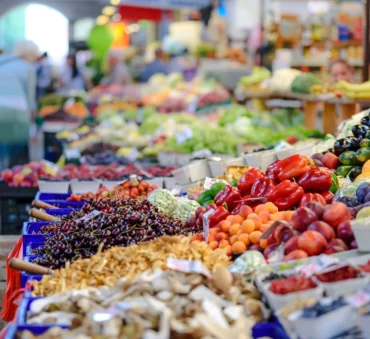Let’s face it – nobody wants to deal with a food recall, especially due to the substantial cost of food recalls in today’s economy. A single food recall can result in over $10 million in direct costs for your business. On top of that, you’ll be hit by indirect financial losses due to damaged brand image, negative impact on stocks, and lost sales.
So, naturally, you would want to avoid this scenario at all costs.
But food recalls do happen. In fact, there were 423 food recall cases in 2022 alone.
The best you can do is to be prepared and know all the potential implications a food recall can have on your business. This can help you minimize its negative impact and recover fast.
Let’s cover all about food recall costs and how to build an effective plan to minimize its financial impact.
What is the Real Cost of Food Recalls?
The real cost of food recalls is the sum of all its direct and indirect costs.
Direct costs (which sadly can often go over the average of $10 million) include:
- Seizing your daily operations to start the recall process immediately
- Pulling additional resources into the recall process to ensure all contaminated items are taken off the shelves as fast as possible
- Announcing the recall to all stakeholders and regulatory agencies
- Handling the logistics around removing and disposing of the contaminated products
- Initiating an investigation to find the source of the contamination
- Resolving the problem to avoid any future food recall occurrences
These are sometimes only a fraction of the overall financial hit that a food recall can have on your business.

On the other hand, indirect food recall costs include:
1. Insurance
About 78% of companies purchase recall insurance. But besides charging premium fees, such insurance services cover only a small amount of the food recall costs.
Additionally, if you have already had to deal with a food recall in the past, you’ll likely be charged an even higher fee. If you have a large-scale recall case with severe damages, the insurer can even cancel your plan.
2. Lost Revenue
This entails all current and future lost sales. You will not only have to destroy the products you manufactured in the first place but also, in some cases, eliminate the whole product line.
On top of that, consumers lose trust in brands that encounter major food recalls. For instance, according to a Harris Interactive poll:
- 55% of consumers would temporarily stop buying from the same brand
- 21% would avoid purchasing all brands produced by the same manufacturer
- 15% would never purchase from the recalled product line
3. Compliance Penalties
If a food inspection agency finds out your products are not compliant with all regulations and endanger public health, it can impose government fines on your business. For example, the FDA can charge you up to $500,000 for a misdemeanor.
Additionally, government agencies like the FDA and USDA can charge you for conducting the audit.
Other related costs might occur due to:
- Shutting down all your operations until the adulterated products are confiscated by the agency.
- Temporarily suspending your food registration license.
4. Lawsuits and settlements
You might face significant legal repercussions depending on the damage the recalled product has caused. That’s why timing is of crucial importance, as this ensures the damaged product has not been consumed or caused harm in any way.
In cases when the product already has caused damage (allergies, illness, or in severe cases, death), your company could be sued directly by consumers. There could also be additional legal fines and settlements outstanding. For example, in 2016, the ConAgra company that sold peanut butter-based products contaminated with Salmonella paid an $8 million fine plus $3.2 million in cash forfeitures.
While prosecutions in food recall cases are not that common, your brand reputation is still damaged as you have failed to protect public health, and consumers can easily lose trust in you.
What is a Food Recall Insurance?
Food recall insurance can partially compensate for some of the incurred costs manufacturers have to cover in the case of a recall.
Food recall insurance is also becoming increasingly important in recent years as the number of recalls has been growing steadily. This is due to the higher number of regulations and varying standards each manufacturing plant has.
Such insurances usually cover:
- Shipping
- Warehouse storage
- Product disposal
- Customer notification costs
- Hiring extra personnel needed to conduct the recall
The higher the premium you pay, the better coverage you get. For example, you could be paying $50,000 for product recall insurance annually, and this could get you coverage of $2 million.
However, such insurance typically does not cover the costs of third parties.
The food recall insurance coverage is triggered once the manufacturer is notified and aware that one of their products is contaminated.
How to Minimize the Financial cost of Food Recalls
A food recall can be costly and can even lead small manufacturers to bankruptcy.
So having a ready plan for action in the occurrence of a food recall can save you lots of headaches. Let’s cover the basics:
Effective Food Recall Plan
As a manufacturer, you can prepare a step-by-step food recall plan that will help you minimize the financial damages.
As quick key takeaways, here’s what you can do:
- Detect and assess the problem: Once you identify the problem, investigate whether the given product is problematic due to mislabeling or contamination. Once you assess the scope of the damage, you should quickly move on to recalling the product.
- Start the recall process: Whether you have an internal recall team or you need to hire externally, you should act fast. Also, ensure you follow all regulations and stay compliant throughout the whole recall process.
- Inform all affected stakeholders: Notify all relevant parties and be transparent in your communication. Communicate all potential health risks and offer any assistance you can provide to affected customers.
- Pull the product from the market and dispose of it: At this stage, you need to retrieve and dispose of all damaged products. But how exactly can you do that in a timely and efficient manner? You can either act on your own or hire a third-party food recall management service like Shapiro to help you speed up the process.
Investigate what caused the problem: When all dangerous products have been pulled out, you can focus your attention on identifying the root cause of the problem. Think: Why did it happen in the first place? How can you improve your quality control to avoid any future incidents?
Relying on a Food Recall Management Agency
Food recall management is a complex and heavily regulated process. On top of that, product recalls are all about acting in a timely manner and in compliance with all regulations. This way, you can minimize any potential health risks and exit the situation with integrity.
Additionally, food recalls put a lot of pressure and strain on manufacturers. Not only do they have to navigate in a highly efficient and organized manner, but they also must minimize the financial hit they take on their business.
To save precious time and minimize all damages a food recall can cause, you can partner up with Shapiro – a reputable food recall and food recycling management and commercial food waste recycling management that can handle the whole process for you. This will give you peace of mind and allow you to focus on eliminating the root cause of the problem and recovering your regular day-to-day operations as fast as possible.
Baily Ramsey, an accomplished marketing specialist, brings a unique blend of anthropological insight and marketing finesse to the digital landscape. Specializing in educational content creation, she creates content for various industries, with a particular interest in environmental initiatives.



